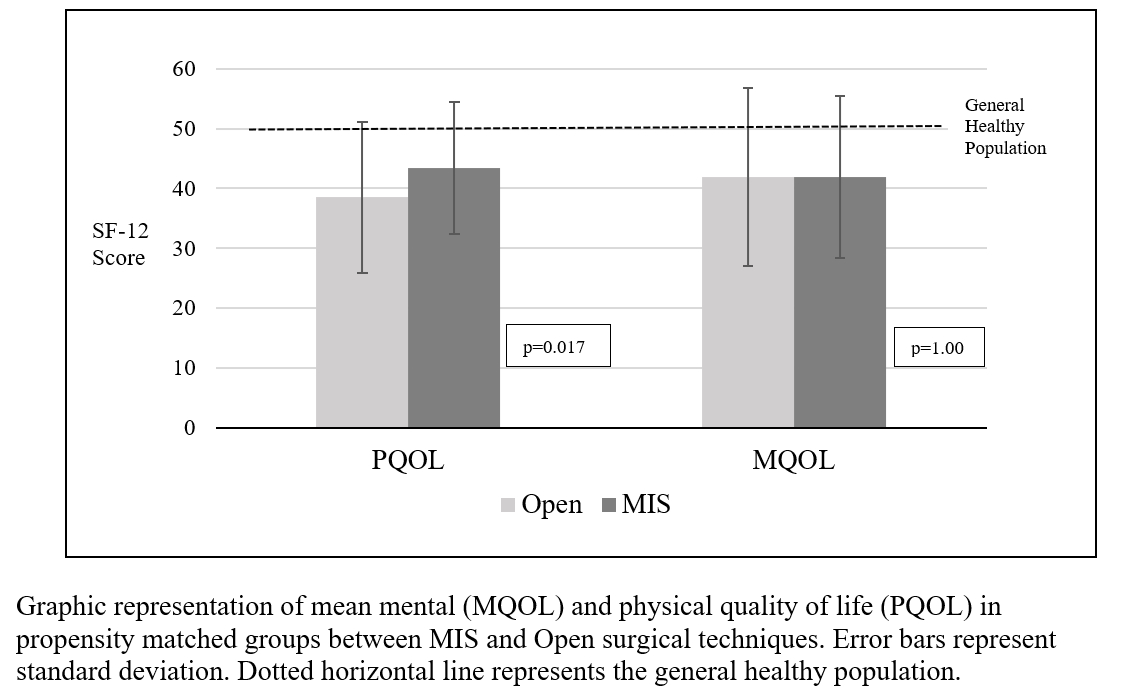Back to 2024 Abstracts
MINIMALLY INVASIVE SURGERY IMPROVES LONG-TERM FUNCTIONAL WELL-BEING IN CANCER PATIENTS: A GLOBAL SURVEY
Conor M. Maxwell, Samuel Yellin, Samantha Falls, Yue Yin, Edward A. Joseph
*, Patrick Wagner, David Bartlett, Sricharan Chalikonda, Casey Allen
Surgical Oncology , Allegheny Health Network, Pittsburgh, PA
Introduction:Minimally invasive surgery (MIS) has contributed significantly to advancements in cancer treatment. However, the determinants of its utilization and the long-term patient-reported outcomes are seldom reported. This study examines the influence of socioeconomic factors on the use of MIS and assesses its impact on the well-being of gastrointestinal cancer survivors.
Methods:Cancer patients who underwent surgical treatment were invited to participate in surveys through global online support groups. Physical health-related quality of life (PQOL) and mental health-related quality of life (MQOL) were assessed using the Short Form-12 questionnaire. Patient age, income, race, education level, care setting, and MIS utilization were assessed. Propensity score matching was employed to compare the long-term well-being of patients who underwent MIS and open surgical techniques.
Results:A total of 392 survivors responded to the survey. The respondents were 60±12 years old, 66% female, and 91% white. MIS was employed in 23% of cases. The study population exhibited lower PQOL (42±12) and MQOL (43±14) compared to the general population (50±10; p < 0.001). In matched cohorts, patients who underwent MIS demonstrated higher PQOL than those who had open surgery (43±11 vs 39±13; p = 0.017). Patients with an annual income > 150,000 USD (33% vs 19%; p = 0.015) and male sex (32% vs 20%; p = 0.009) were more likely to undergo MIS.
Conclusion:Gastrointestinal cancer patients experience sustained functional impairments following surgery. MIS is associated with enhanced long-term functional well-being. Efforts to expand access to MIS across all socioeconomic strata are warranted.

Back to 2024 Abstracts
